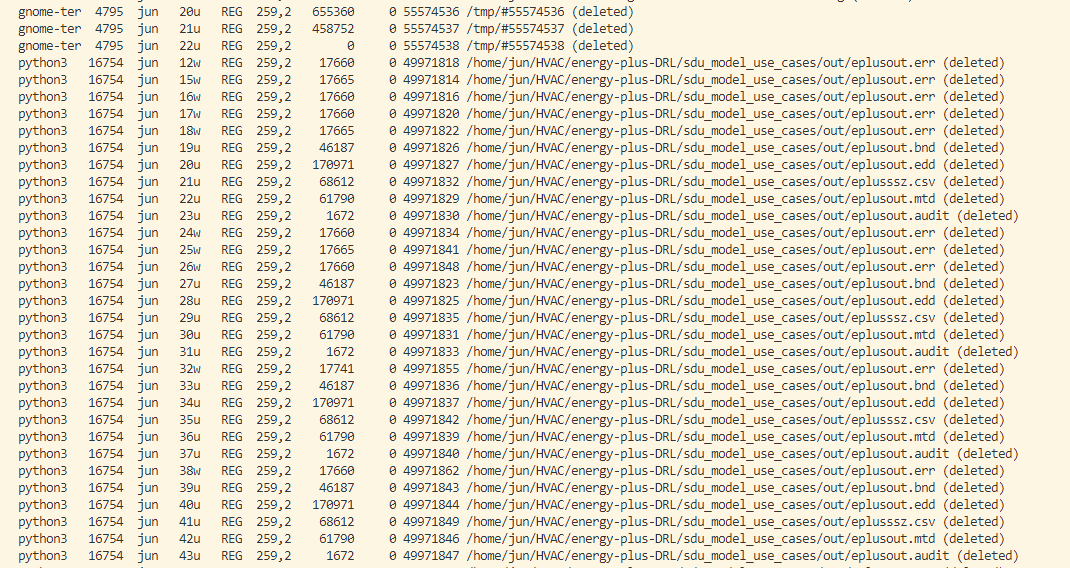How to close file handles when running multiple python EMS simulations?
Hi, I have a python script where I am trying to run thousands of simulations in a sequential fashion. I am making a copy of the whole energyplus directory and instantiating an API object each time. while I keep a reinforcement learning agent in a separate object interacting with the energyplus wrapper object for each run.
After certain number of runs I am always hitting the error of "Too many open files" or Energy plus itself not being able to access a file because it has hit the OS limit for file handles in a single process.
If I run the command lsof | awk '{ print $1 " " $2; }' | sort -rn | uniq -c | sort -rn | head -15 in linux I find that my python3 process keeps opening handles as the execution time passes.

If I try listing the open file handles I can see it's a bunch of out files from energyplus which I am manually deleting but the handle remains attached to the python process, even with the file deleted.

I saw one possible solution is to increase the maximum number of handles available for a single process in Linux, however this is not a scalable solution since I am planning to run even millions of simulations in a single run.
Is there a way of closing the file handles opened by the energyplus simulation? Any idea of a different approach for this would also be widely appreciated.
Thanks.







How do you launch the E+ simulation? Can you share a sample code? If you use python multiprocessing/threading, did you you forget to
join()the threads/processes?@Edwin has two examples: 02_threaded.py and 03_multiprocessed.py in Myoldmopar/EnergyPlusAPIHelper that you may want to check out
Hi @Julien. Thank you for your answer. I was basically executing the function EnergyPlusAPI.runtime.run_energyplus() sequentially in a for loop. This caused the python process to accumulate the handles of each energyplus run.
I took a look into the multiprocessing API of python and implemented each run as a process which solved the issue. Thanks!